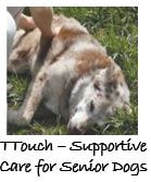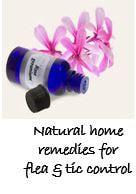Herbal Remedies Can be Harmful to Pets
© 2016 Foster & Smith, Inc.
Reprinted as a courtesy and with permission from PetEducation.com(http://www.PetEducation.com)
On-line store at http://www.DrsFosterSmith.com
Free pet supply catalog: 1-800-323-4208
Herbal and other supplements have become increasingly popular with people as remedies for themselves as well as their animals. Many herbal and alternative therapies, such as glucosamineand antioxidants have scientific studies to prove their efficacy. It's important to know if a therapy is effective, but it is also important to know what potential side effects it may cause. 'Alternative' and 'herbal' do not mean 'harmless'. Many supplements can potentially cause severe side effects, or result in cross reactions if used with other supplements or medications. Here are some examples:
- Ginkgo affects the blood's ability to clot. If it is given with aspirin or 'blood thinners' such as coumadin, severe bleeding could result.
- Garlic at high doses can cause anemia in cats. It may also increase bleeding tendencies, so it should not be used in animals who are going to undergo surgery.
- Kelp may have an adverse effect in animals with autoimmune thyroid disease.
- Psyllium and fiber which are used to treat simple constipation can cause adverse effects if there is obstruction of the bowel.
- St. John's wort may prolong or increase the effects of certain narcotic drugs and anesthetics.
- Echinacea should not be used in pets with immune system disorders such as lymphoma, autoimmune disease, or suppressed immune systems, including cats infected with FIV orFeLV.
- Melatonin affects the central nervous system and can interfere with other drugs. It should not be given to animals with heart, kidney or liver disease; immunosuppression; or a history of anxiety or seizures.
- Ma huang, from the Ephedra plant can cause agitation, hallucinations, rapid heart rates and seizures.
- Ginseng can cause increased blood pressure.
- The effects of many natural remedies on pregnant animals and their developing offspring are, in many cases, unknown.
If you are thinking about giving a nutraceutical or herbal supplement to your pet, discuss it first with your veterinarian. If your pet is already on one of these therapies, inform your veterinarian. It may influence prescribing of other medications, the results of certain laboratory tests, or timing of surgery. In human medicine, the American Society of Anesthesiologists has recommended that patients stop taking all natural remedies at least two weeks before surgery.
If you are taking natural remedies, keep them out of the reach of children and pets. The National Animal Poison Control Center reports numerous cases of toxicities in pets resulting from them eating their owner's supplements. Also, be sure to inform your own health care providers of any supplements you are taking.
If you are taking natural remedies, keep them out of the reach of children and pets. The National Animal Poison Control Center reports numerous cases of toxicities in pets resulting from them eating their owner's supplements. Also, be sure to inform your own health care providers of any supplements you are taking.
|
Skin Allergies
One of the most common medical complaints seen in dogs is skin related. Unlike humans who react to allergens with nasal symptoms, dogs react with skin problems. |
The Tellington TTouch Method: Supportive Care for Senior Dogs
The TTouch method can help a dog maintain or retain activity, alleviate the aches and pains of aging, reduce age-related anxieties, and provide comfort and aid in overall physical and mental functioning. |
Natural Home Remedies for Flea and Tick Control
A lot of people are reluctant to use chemical flea treatments because of the possibility of a toxic reaction with the skin. "If it isn't safe for my children, how can it be safe for my pet?" they ask. ds for flea eradication and control. |




